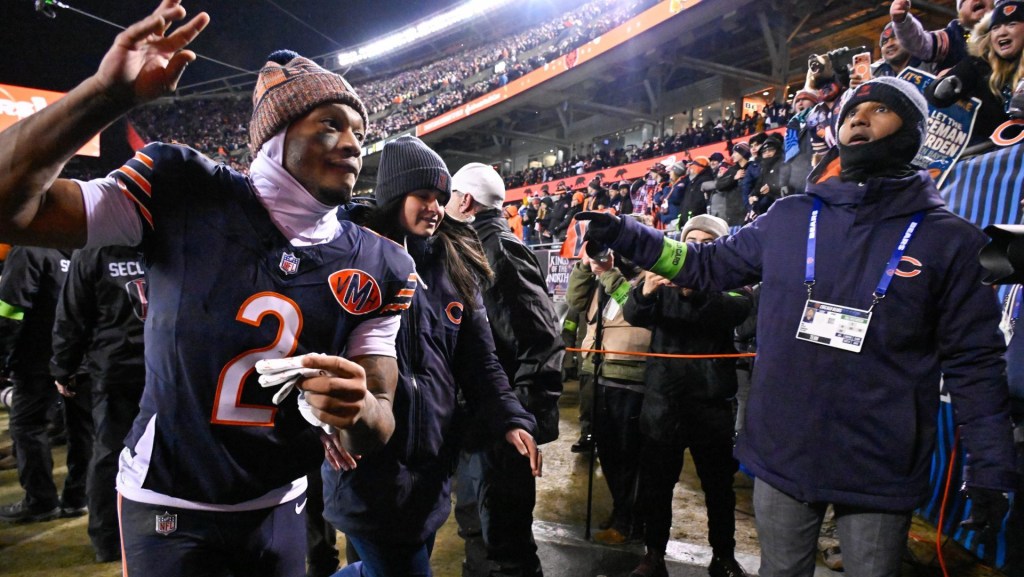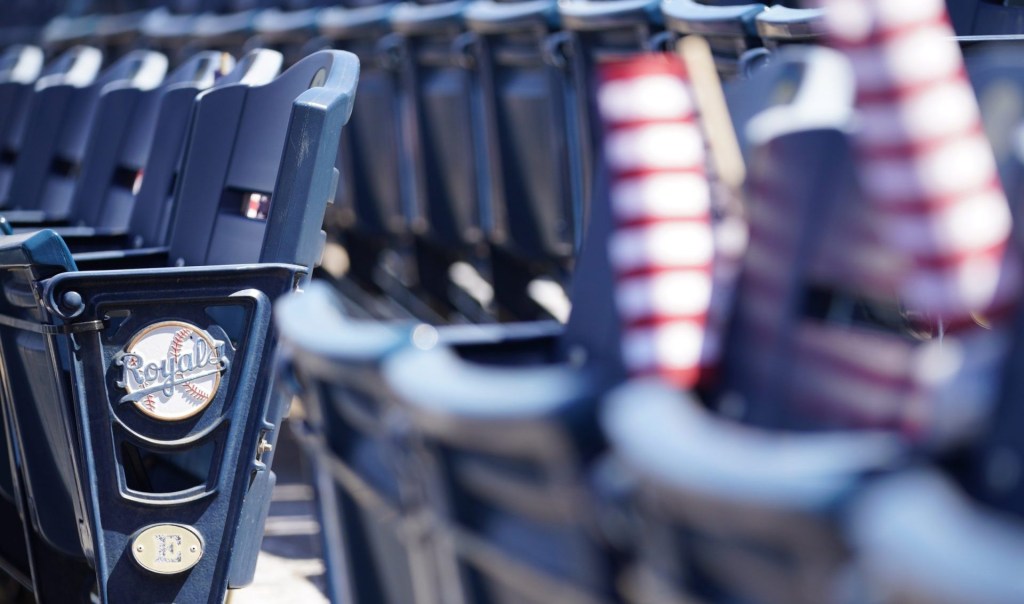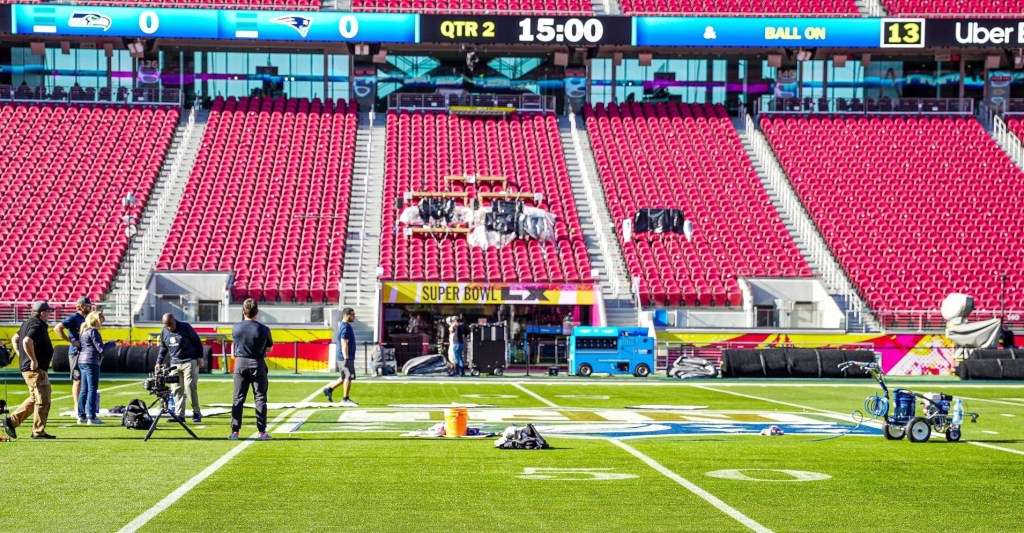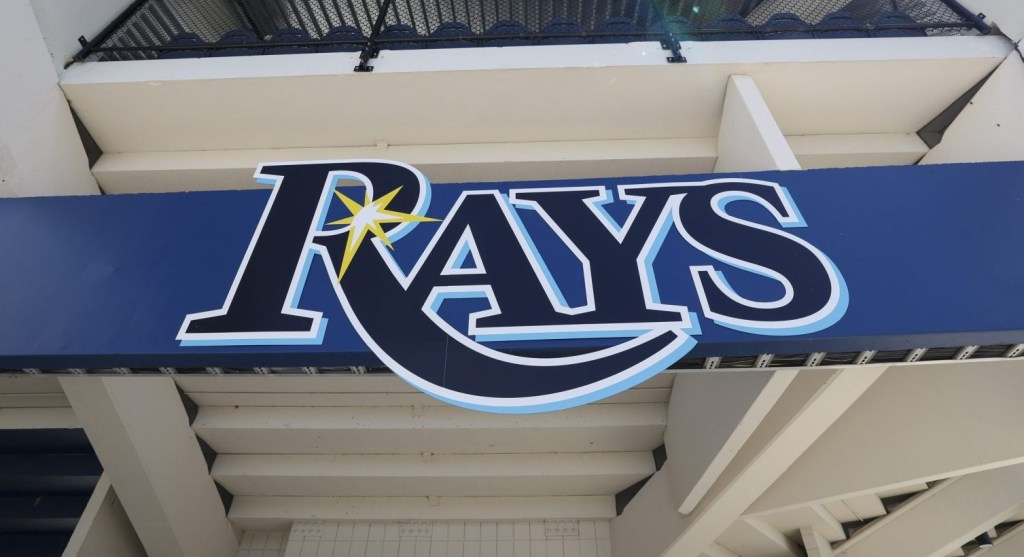In less than a decade, Las Vegas has gone from a sports industry pariah to one of the most coveted destinations.
Sin City has had a fruitful relationship with the NBA Summer League and a few conference basketball tournaments, but historically speaking, pro teams and NCAA championships wouldn’t dare get close to the Strip.
But since 2017, Las Vegas has attracted successful NHL and WNBA franchises, lured the Raiders from Oakland, and secured multiple events from the NFL Draft and Super Bowl to a Formula 1 Grand Prix and a men’s Final Four. And that doesn’t include last week’s announcement of the Oakland A’s potential arrival.
“I think people felt like, sooner or later this will probably happen — I hope I’m still around to see it,” Steve Hill, the President and CEO of the Las Vegas Convention and Visitors Authority, told Front Office Sports. “Eight years later, it’s a phenomenon. This city has got energy and critical mass around professional sports.”
It’s no accident. For years, city authorities had been plotting and building infrastructure that could accommodate top sports franchises and events. A well-timed Supreme Court ruling in 2018 opened the floodgates, allowing multiple franchises to make a new home in the desert.
Building a Sports Paradise
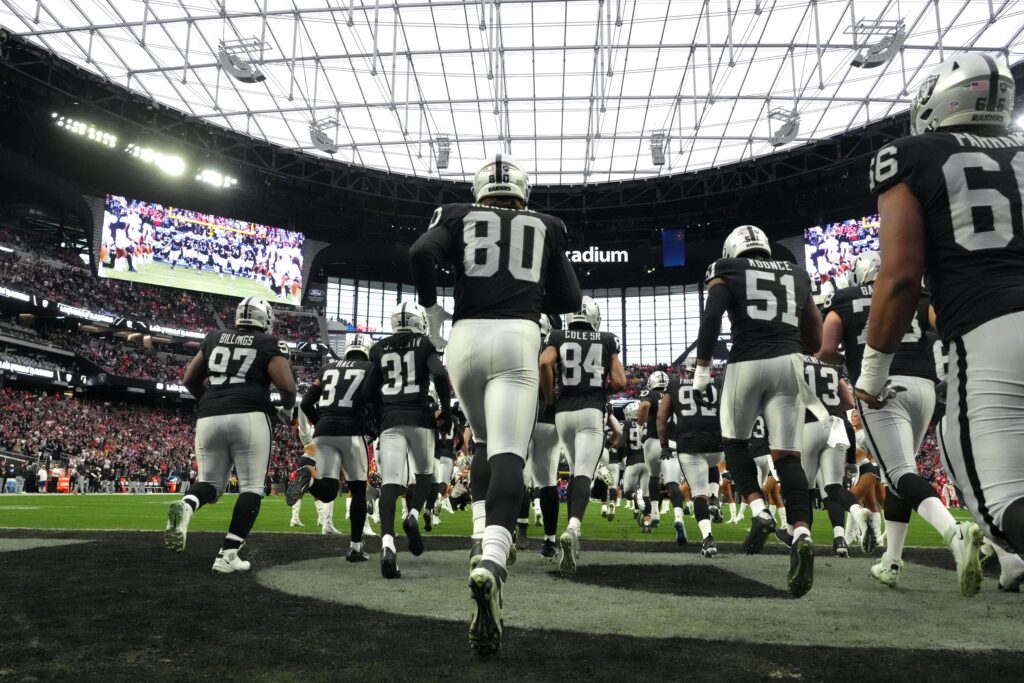
On May 14, 2018, the Supreme Court struck down a federal sports betting ban. But Hill pointed out that before that, Vegas had already constructed more hotel capacity than any other city in the country, as well as the Strip’s close proximity to all venues.
“This city is one of the few cities that is pretty much built as a platform to put on events,” he said.
The first major project: T-Mobile Arena, which opened in 2016 to welcome an NHL expansion franchise, the Vegas Golden Knights. The Knights, the first major league team to set up shop in Sin City, went to the Stanley Cup Final in their first season.
But Vegas was sorely missing a new, quality football venue. The construction of Allegiant Stadium, a $1.97 billion project that yielded a state-of-the-art facility, was the main draw.
The stadium project, first announced in early 2016, was the reason Raiders owner Mark Davis moved his team to Vegas. He had wanted a new stadium for years, and it was becoming clear that Oakland wouldn’t accommodate his wishes — something Davis blames on the A’s leadership given that the two teams had to share a stadium.
Hill met with the Raiders for the first time seven years ago last week. “That seems like just yesterday and forever ago at the same time,” Hill reflected.
Davis pledged $500 million to the project in mid-April of that year. Despite multiple financing issues, the city broke ground on the stadium in 2017 — the same year the Knights showed what a successful franchise in Sin City could look like.
Three years later, the Raiders officially moved to the area and played their first game in the glitzy new stadium.
Allegiant is also the main reason the city will host its first Super Bowl next year and first men’s Final Four in 2028. Hill said it even helped the city lure Formula 1, which has been growing in popularity in the U.S., to stage a Grand Prix that winds through the streets. The inaugural event will take place the weekend before Thanksgiving.
The Arrival of Sports Betting
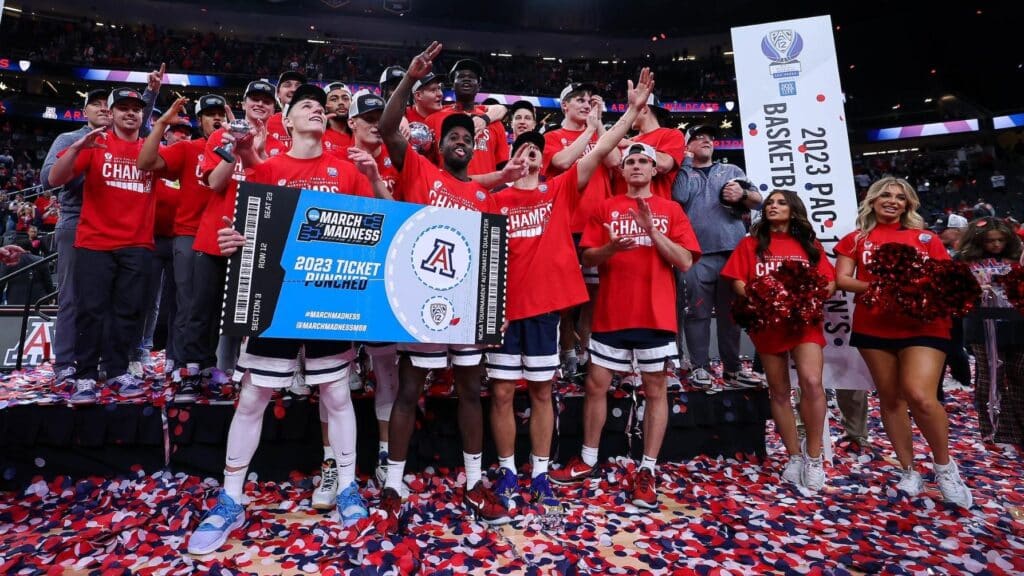
None of Las Vegas’ resources would have mattered if the federal ban on sports betting hadn’t been lifted. Take the NCAA’s attitude shift, for example.
Las Vegas had long garnered the interest of individual college teams, hosting not just multiple D-I conference tournaments each year but also the 2023 National Invitational Tournament. But the NCAA refused to bring its own championships to Sin City — until the Supreme Court ruling in 2018.
As states nationwide began to pass sports gambling laws and pro franchises started to take Las Vegas seriously, the NCAA reconsidered its position.
Hill called the Supreme Court ruling “the key” for the NCAA to rethink its anti-Las Vegas stance. When the ruling came down, the city immediately began putting together bids for major events.
Last week, the city hosted its first NCAA championship: women’s bowling.
The 2028 men’s Final Four will be the biggest NCAA event in Las Vegas history.
The city was even able to spin the casino industry — and its infamous sportsbooks — as a positive. “Nevada has been recognized as the gold standard for gaming regulation for decades,” Hill said.
Athletics’ New Home?

The Oakland A’s enjoy two other advantages that continue to entice teams: They don’t have to worry about competing with entrenched franchises, and they see a willingness of local authorities to continue building massive and expensive sports complexes.
On April 20, the A’s solidified their relocation.
The team reportedly flouted an offer to buy a plot for just $1 on the Las Vegas resort corridor. Instead, they opted to enter an agreement to purchase a 49-acre plot of land that will require $500 million of public funding. Oakland had been exploring new stadium opportunities with the A’s, but after years of negotiations with the city around a $12 billion waterfront stadium and surrounding development, the team grew frustrated and pivoted to Vegas.
It’s not a done deal, however. The A’s could still pull out of the land purchase if they don’t get public funds. And there’s a personal feud, too: Davis told the Las Vegas Review-Journal that his team still has bad blood with the A’s and would only be willing to work with the team if a new ownership group took over.
But those are small conundrums compared to the issues many cities across the country face when keeping or attracting teams and events. “Las Vegas would have been in a position to take advantage of the opportunities that presented themselves,” Hill said.
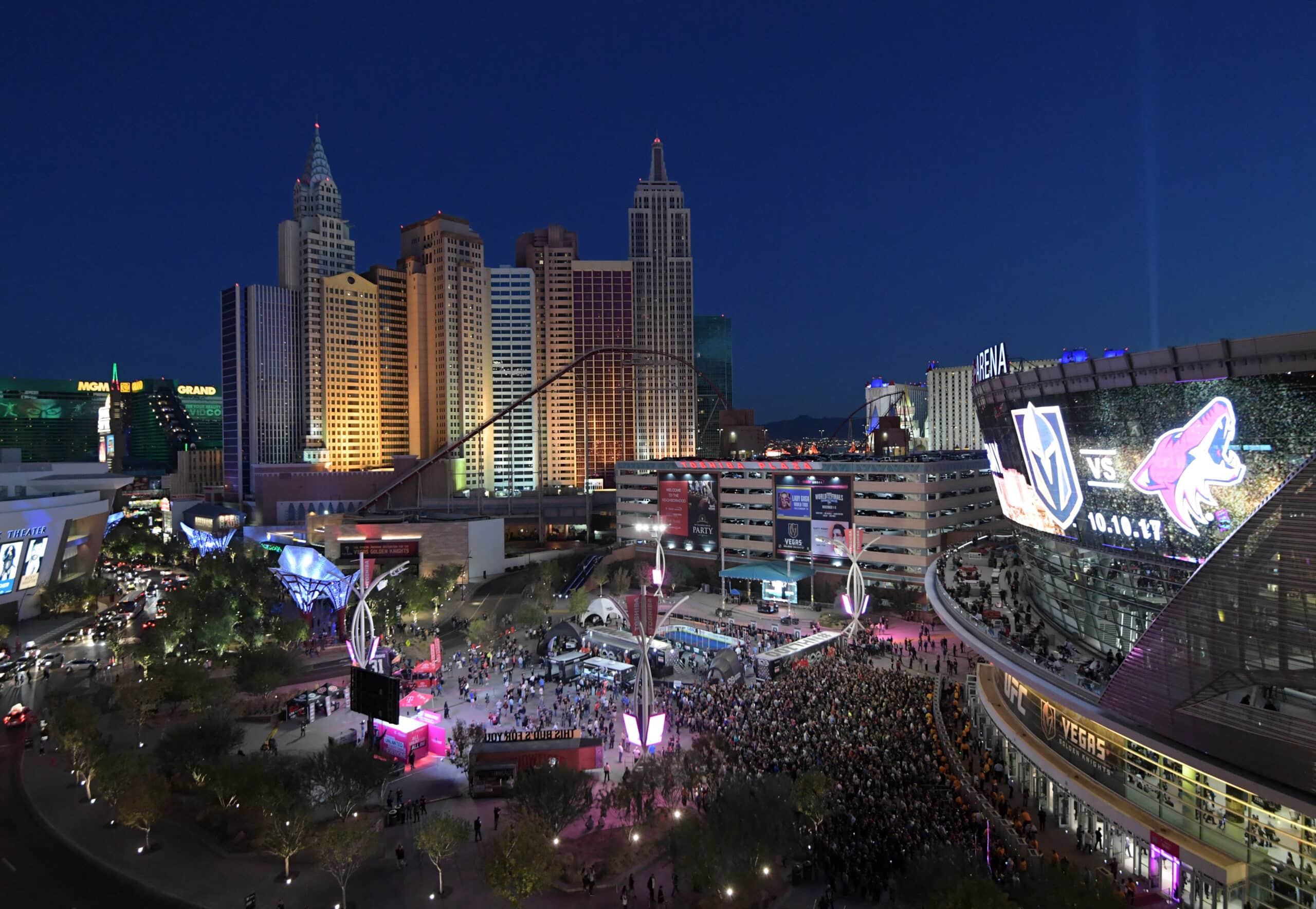
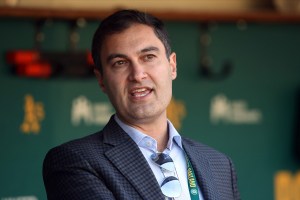
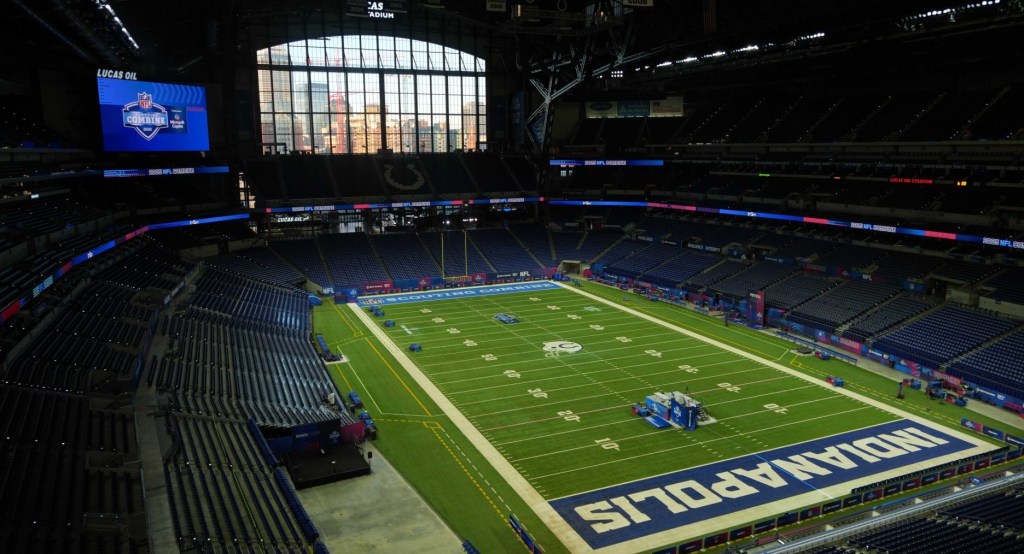
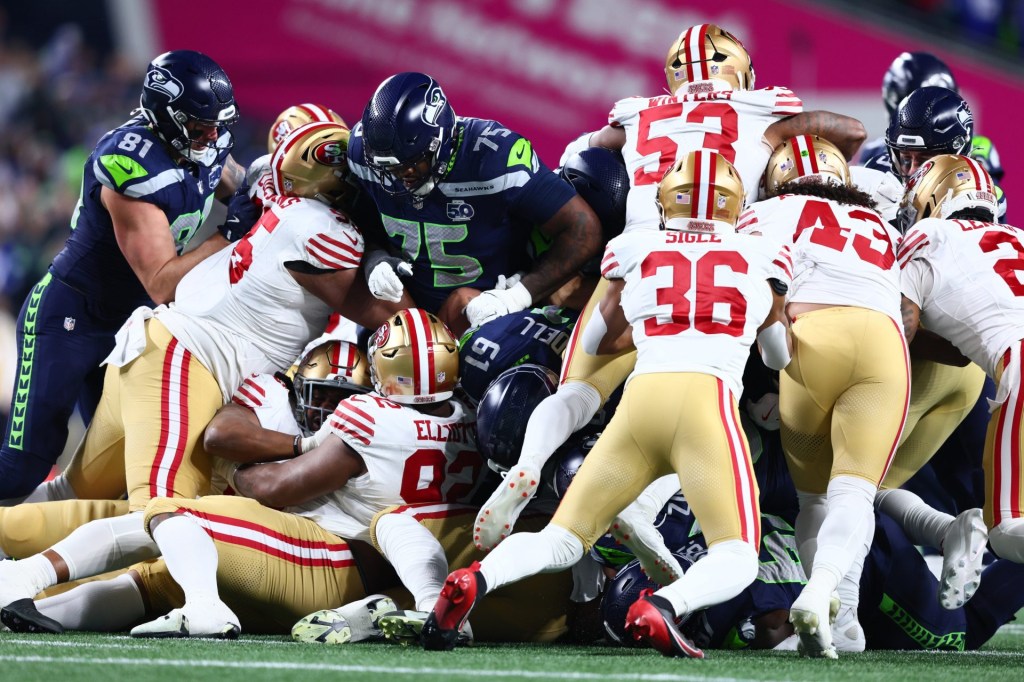

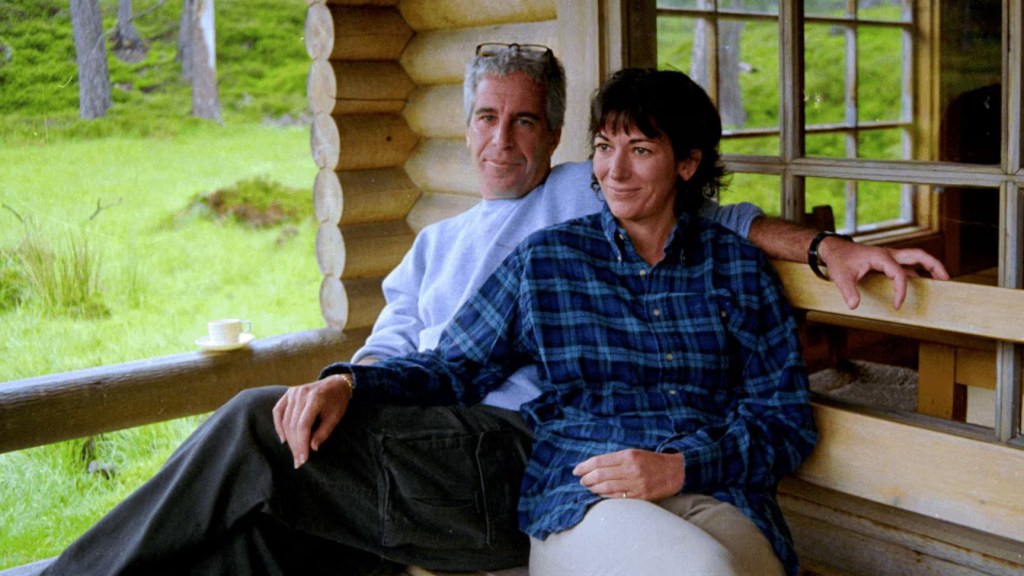
![[Subscription Customers Only] Jul 13, 2025; East Rutherford, New Jersey, USA; Chelsea FC midfielder Cole Palmer (10) celebrates winning the final of the 2025 FIFA Club World Cup at MetLife Stadium](https://frontofficesports.com/wp-content/uploads/2026/02/USATSI_26636703-scaled-e1770932227605.jpg?quality=100&w=1024)




